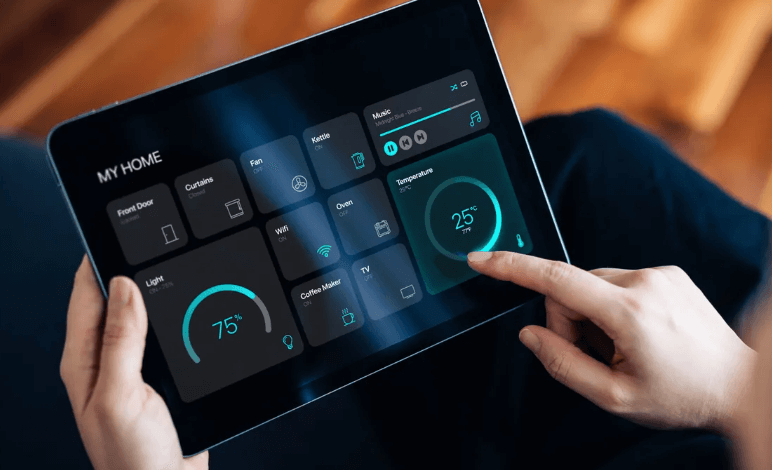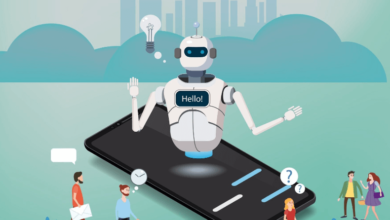The Role of Artificial Intelligence in Smart Home Technologies

Artificial intelligence (AI) has become a cornerstone of modern smart home technologies, transforming how we interact with our living spaces. From enhancing convenience to improving energy efficiency and security, AI-powered systems are redefining home automation by making it more intuitive, adaptive, and personalized. By leveraging machine learning algorithms and advanced data analytics, AI enables smart homes to anticipate needs, respond to commands, and deliver seamless user experiences.
Understanding AI in Smart Home Technologies
Artificial intelligence refers to systems capable of performing tasks that typically require human intelligence, such as decision-making, learning, and problem-solving. In the context of smart homes, AI is integrated into devices and platforms to enhance their functionality. It allows gadgets to analyze data, learn from patterns, and interact with users more effectively.
Smart homes powered by AI are designed to simplify everyday tasks, such as controlling lighting, managing appliances, and adjusting thermostats. AI systems gather and process information from various sensors and devices within the home, enabling real-time responses to user needs. For instance, a smart thermostat can analyze occupancy patterns and weather conditions to automatically adjust the temperature, optimizing comfort and energy consumption.
Personalization and User-Centric Experiences
One of the most significant roles of AI in smart homes is its ability to provide personalized experiences. Unlike traditional automation systems that rely on pre-set commands, AI systems learn user preferences over time.
For example, AI-powered voice assistants like Amazon Alexa, Google Assistant, and Apple’s Siri can recognize individual voices and customize responses accordingly. They can recommend music playlists, set reminders, or provide weather updates based on a user’s preferences. Smart lighting systems can adjust brightness and color tones to match mood or time of day, creating a tailored environment.
This personalization fosters a deeper connection between users and their homes, making interactions more engaging and intuitive.
Enhanced Energy Efficiency
AI plays a crucial role in optimizing energy consumption within smart homes. By analyzing data from connected devices, AI can identify patterns of usage and suggest ways to reduce energy waste.
Smart energy management systems, for instance, monitor appliances and power usage to recommend energy-saving strategies. They can automatically turn off lights in unoccupied rooms, schedule energy-intensive tasks during off-peak hours, or reduce heating and cooling when no one is home. These features not only lower utility bills but also contribute to sustainability by reducing a home’s carbon footprint.
Advanced AI systems can even integrate with renewable energy sources, such as solar panels, to maximize their efficiency. By predicting energy production based on weather forecasts and usage trends, AI ensures that homes make the most of clean energy while minimizing reliance on the grid.
Revolutionizing Home Security
Security is a top priority for smart home technologies, and AI has significantly elevated the standards of home protection. AI-powered surveillance cameras and sensors provide real-time monitoring, advanced threat detection, and actionable alerts.
Facial recognition systems can distinguish between familiar faces and potential intruders, sending notifications only when unusual activity is detected. Smart locks integrated with AI offer secure access control by allowing homeowners to lock and unlock doors remotely or grant temporary access to guests.
AI also enhances alarm systems by reducing false alarms. For instance, it can differentiate between a pet and a potential intruder, ensuring that notifications are accurate and meaningful. Additionally, AI-enabled devices can integrate with emergency services, automatically alerting authorities in case of a break-in or fire.
Voice Control and Natural Language Processing
Voice control is a hallmark feature of AI in smart homes, enabling hands-free operation of various devices. This functionality relies on natural language processing (NLP), a subset of AI that allows systems to understand and respond to spoken language.
Through NLP, smart assistants can interpret complex commands, recognize context, and provide accurate responses. For example, a user might say, “Dim the lights in the living room and play relaxing music,” and the system will execute both actions simultaneously.
As NLP technology continues to improve, smart home systems are becoming more conversational and capable of handling nuanced requests, enhancing user convenience.
Seamless Integration of Devices
AI facilitates the seamless integration of multiple smart devices, creating a unified ecosystem that works harmoniously. By serving as the central intelligence, AI coordinates communication between devices, ensuring they operate in sync.
For example, when a homeowner arrives, an AI system can trigger a series of actions, such as unlocking the door, adjusting the thermostat, and turning on the lights. This level of coordination simplifies daily routines and enhances the overall smart home experience.
Additionally, AI-powered platforms like Samsung SmartThings, Google Home, and Amazon Echo Hub act as central hubs, allowing users to control various devices from a single interface. This interoperability is crucial as the number of smart home devices continues to grow.
Predictive Maintenance and Troubleshooting
AI in smart homes extends beyond convenience and control to include predictive maintenance. By continuously monitoring connected devices, AI can identify potential issues before they become significant problems.
For instance, a smart refrigerator might detect fluctuations in temperature and alert the user to potential cooling system failure. Similarly, a washing machine can notify homeowners when a part needs replacement. This proactive approach not only reduces downtime but also extends the lifespan of appliances.
AI-powered troubleshooting systems also guide users in resolving technical issues. By providing step-by-step instructions or automated solutions, they eliminate the need for professional assistance in many cases.
Challenges and Ethical Considerations
Despite its benefits, the integration of AI into smart home technologies raises certain challenges and ethical concerns. Privacy is a significant issue, as smart home devices often collect and store sensitive data about users’ habits and preferences. Ensuring robust data encryption and compliance with privacy regulations is essential to protect users.
Additionally, the reliance on cloud-based systems can pose security risks. Hackers could exploit vulnerabilities to gain unauthorized access to smart home networks. Manufacturers must prioritize cybersecurity measures, such as regular updates and secure authentication protocols, to address these risks.
Another consideration is the potential for over-reliance on AI. While automation offers convenience, users should retain control and understand how systems operate to avoid losing agency over their smart homes.
The Future of AI in Smart Homes
The role of AI in smart homes is expected to grow exponentially as technology evolves. Innovations in machine learning, IoT, and edge computing will make AI systems faster, smarter, and more efficient.
Future smart homes may feature even greater levels of automation and adaptability. AI could enable homes to anticipate needs based on external factors like weather or schedules, creating an environment that seamlessly aligns with the user’s lifestyle.
As AI becomes more sophisticated, it will also play a pivotal role in advancing sustainability, accessibility, and security within smart homes. From integrating renewable energy sources to enhancing support for individuals with disabilities, the possibilities are boundless.
Conclusion
Artificial intelligence is revolutionizing smart home technologies, transforming them into intelligent ecosystems that adapt to users’ needs. By offering personalized experiences, improving energy efficiency, and enhancing security, AI has made homes more comfortable, connected, and responsive.
While challenges such as privacy and security need to be addressed, the potential benefits of AI-driven smart homes far outweigh the drawbacks. As innovation continues, AI will play an even more integral role in shaping the homes of the future, redefining the way we live, work, and interact with our surroundings.




